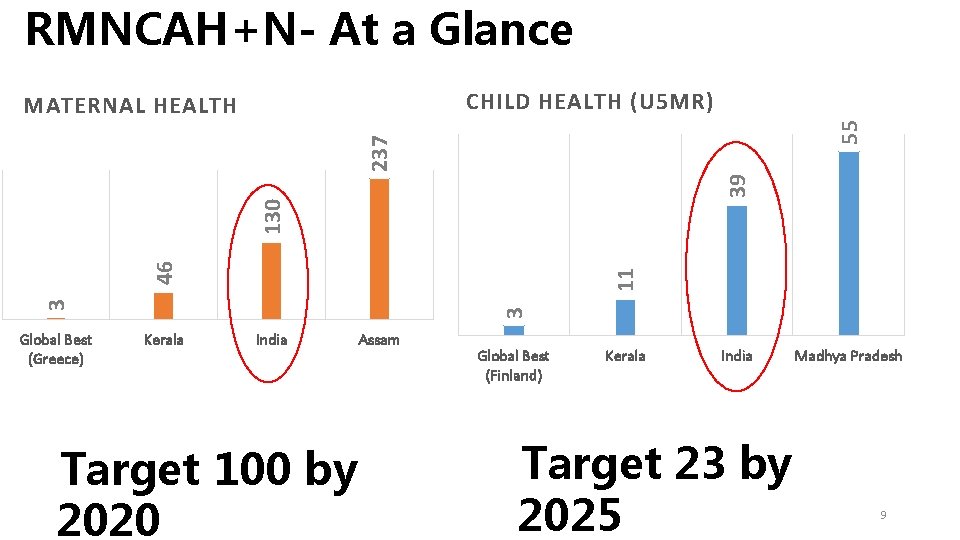By Zayamu Hassan
The Federal Government has called on state governments across the country to prioritise the adaptation and adoption of policy instruments on the Nigeria’s Reproductive, Maternal, Newborn, Child, Adolescent and Elderly Health Plus Nutrition (RMNCAH+N).
The Minister of Health, Dr Osagie Ehanire, made the call at the meeting of the RMNCAEH+N multi-stakeholder partnership coordination platform, in Abuja, Tuesday.
The meeting also witnessed the official launch of the revised guidelines and tools for Maternal Perinatal and Child Death Surveillance and Response (MPCDSR) and the inauguration of the Steering Committee to be chaired by the Minister of Health.
The President of the Society of Gynaecology and Obstetrics of Nigeria (SOGON) and the President of the Paediatrics Association of Nigeria (PAN) are Vice-Chairs.
Ehanire further called on the state governments to give these policies maximum dissemination and visibility; aggressively advocate for and promote implementation of these policies; and monitor implementation of the policies.
Speaking on the efforts to halt maternal mortality, the Minster said that the major factor in maternal mortality is what he described as the delay in reaching a health facility.
Ehanire, therefore, revealed that as part of effort to halt the ugly situation: “The National Emergency Medical Service and Ambulance System (NEMSAS) will be launched and piloted in FCT, to mitigate barrier and facilitate prompt access for patients in need of urgent medical attention without demand for payment at point of care.
“This service will be expanded to other states to make it available to pregnant women in Nigeria.
“One ugly complication from failure of safe and timely delivery is obstetric fistula, the devastating injury to women, of which up to 90 per cent of deliveries end in stillbirth. An estimated 2 million cases of obstetric fistula occur globally.
“Nigeria has an estimated prevalence rate of about 150,000 cases with 12,000 new cases recorded yearly.”
The Minister disclosed that as part of RMNCAEH+N commitments, the Federal Government is currently working to ensure availability of family planning commodities and services, by launching the FP2030 commitment.
This, according to him, is aimed at increasing domestic funding and sustainable financing through earmarking of 1% health budgets, at federal and state levels.
“We are optimistic that Nigeria will attain its vision with a strategy that allows eligible citizens, including adolescents, young people, and vulnerable populations, to make informed choices and get equitable, affordable access to quality FP and participation in national development. This is the goal of the FP2030 commitment.
“Maternal and Perinatal Death Surveillance and Response (MPDSR) is a priority initiative, that gives the serious subject of maternal, perinatal and infant mortality and morbidity audit the attention required, to learn lessons that help us avert future occurrence.
“The initiative has indeed been expanded to incorporate child mortality audit, making it now the Maternal Perinatal and Child Death Surveillance and Response (MPCDSR). The enabling bill has been passed by the National Assembly, and is awaiting Presidential assent,” the Minister said.
The documents that were launched at the meeting include The National Child Health Policy, 2022 Revision: First published in 2006; Maternal Perinatal and Child Deaths Surveillance and Response (MPCDSR) Guidelines and Toolkits 2022 Revision: First published in 2015; the National RMNCAEH+N COVID-19 Response Continuity Plan and the National Strategy Plan of Action for Nutrition (NSPAN) 2021-2025.
Others include Media Engagement Strategy for Health Promotion in Nigeria. 2021-2025; National Integrated RMNCAEH+N Social and Behaviour Change (NIRMNCAEH+N.SBC); National Training Manual on Peer to Peer Health Education for Adolescent and Young People in Nigeria; Essential Service Package for Sexual and Reproductive Health and Rights (SRHR) Need of Women and Girls Survivors of Gender-based Violence (GBV), Child Marriage and Female Genital Mutilation (FGM) in Nigeria and the National Guidelines on Health Care for those who have Experienced Gender Based Violence Clinical Handbook.


